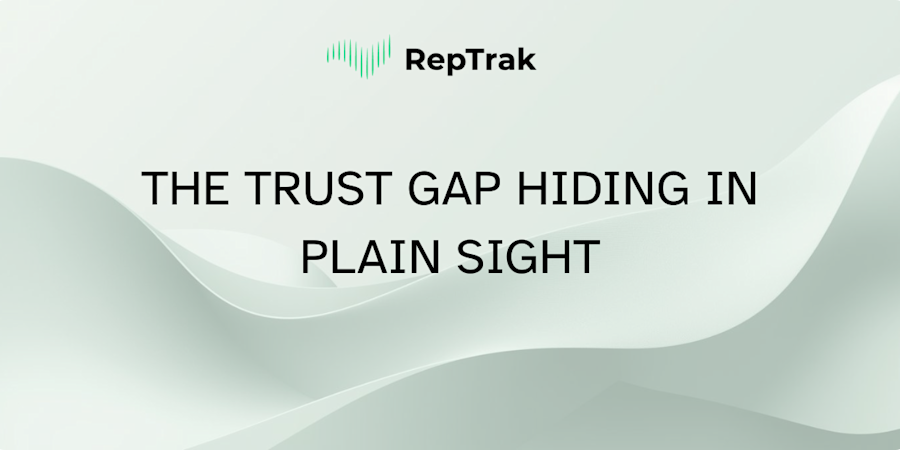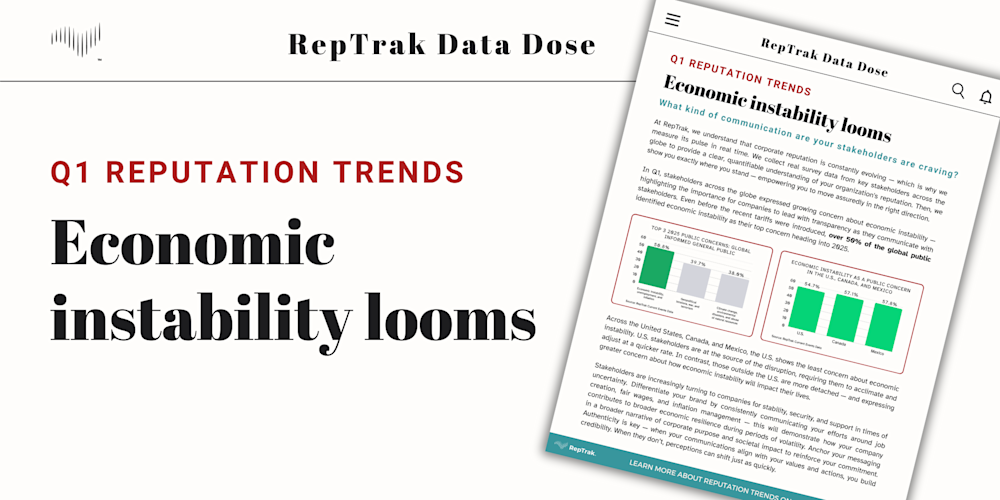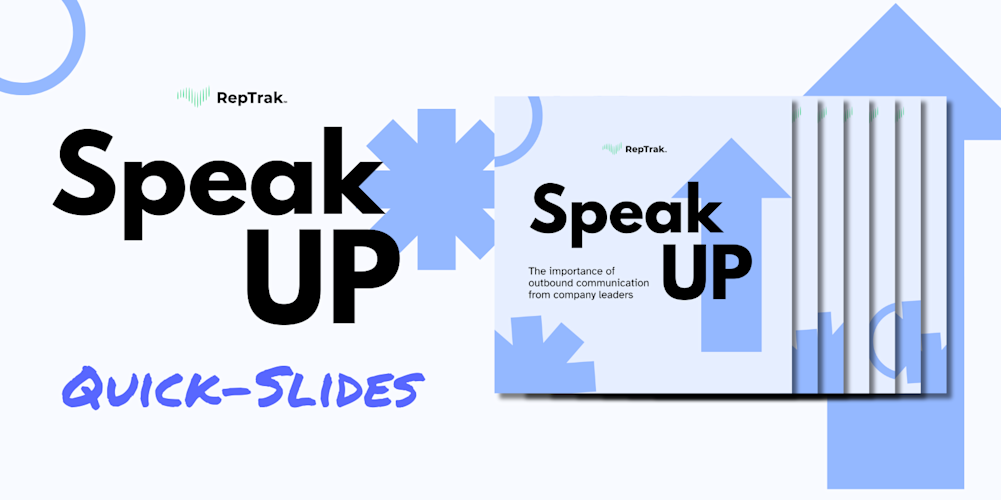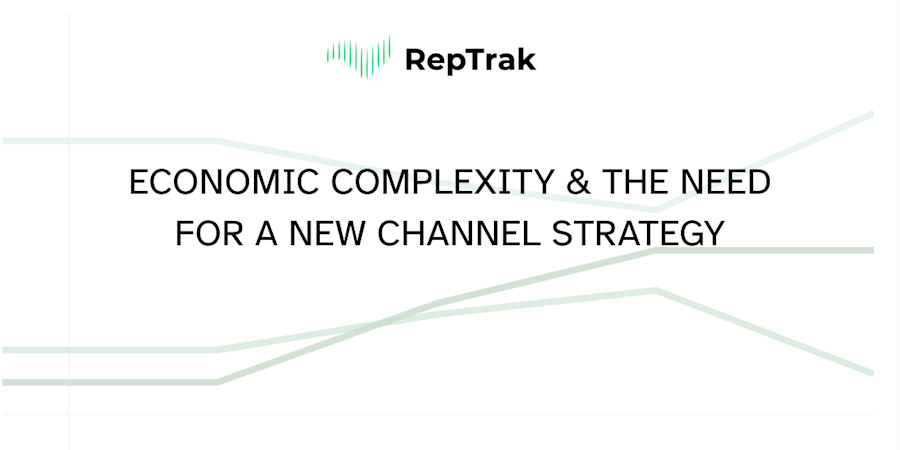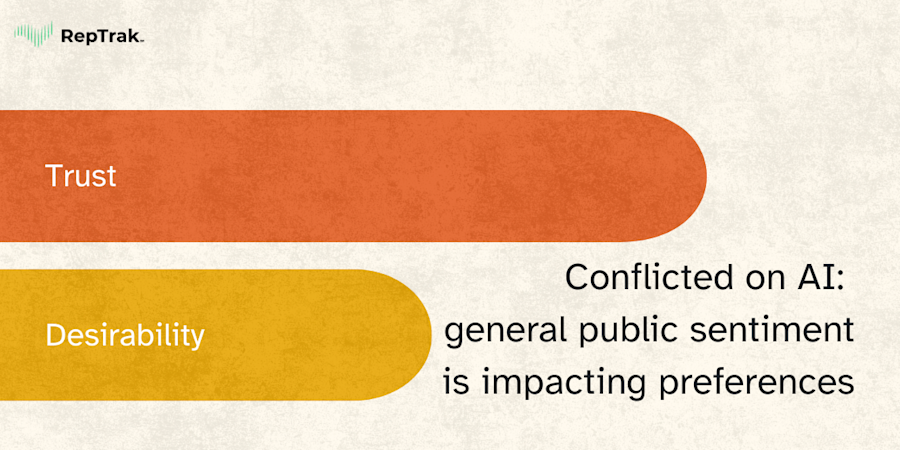Brave New World: How Communications Leaders Can Navigate Uncertainty with Reputation Intelligence
Blog Post19 Jun, 2025
“You think you’re moving up, but you’re actually going down. You step forward, yet somehow you’re still in the same place." That’s the frustration we often hear from communications leaders today — that the modern corporate landscape feels paradoxical and confusing.
It’s understandable, then, why many executives choose the route of caution — remaining in place, waiting for clarity that never quite arrives. But as we discussed in a recent session with the European Association of Communication Directors (EACD), this cautious inaction is threatening your business. As confusing as the landscape is, leaders must rather act with informed courage or risk surrendering your own narrative to external forces.
But don’t worry, this bravery isn’t about reckless leaps or flashy slogans — it’s about navigating complexity thoughtfully, guided by clarity, data, and insight. That’s where reputation management, and RepTrak, comes in.
Everything Changes — Yet Nothing Has Changed
Geopolitical instability, economic volatility, technological disruption, and deeply polarized social values are igniting a sense that corporate communicators must re-write their playbook overnight. But look closer, and a surprising truth emerges: despite the noise, the fundamentals for comms haven’t changed. RepTrak data continues to reveal that stakeholder expectations remain strikingly consistent — even in the face of seismic global shifts. Three drivers have consistently ranked as the highest in importance: Products & Services, Conduct, and Citizenship.
Quality Products & Services: Dependable value still sits at the top of the list.
Ethical, Transparent Conduct: Fair, honest behavior remains non-negotiable.
Positive Societal Impact: Making a meaningful contribution to society is no longer optional.
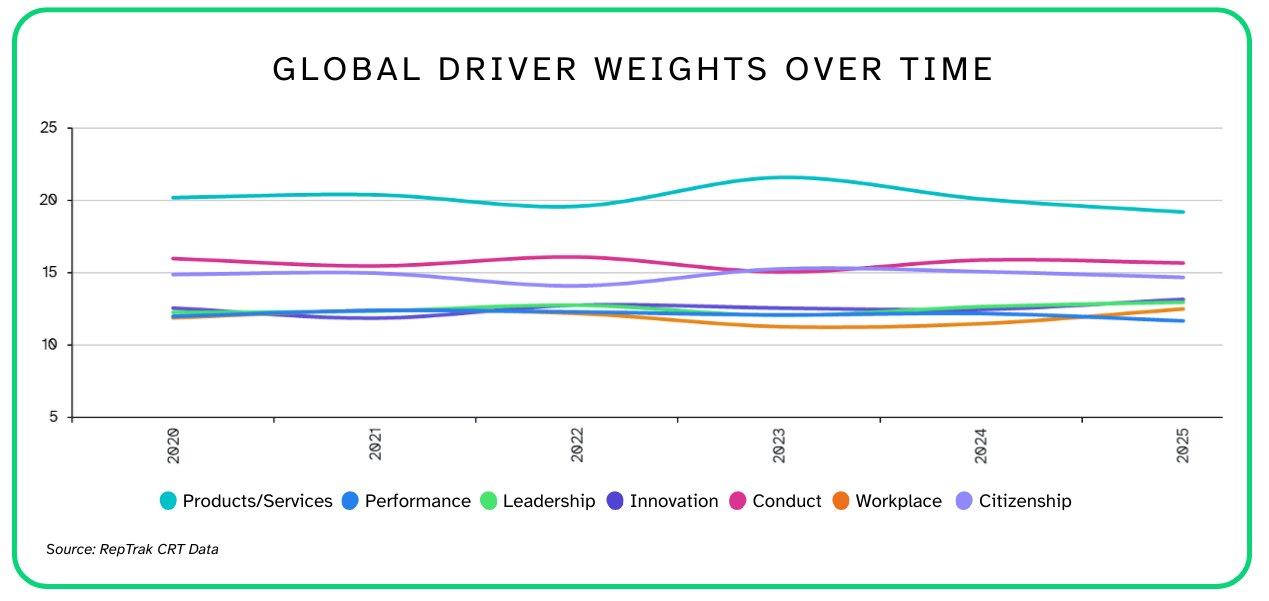
The takeaway? The public hasn’t changed just because the headlines have.
As we often remind our clients: reputation isn’t just a badge — it’s a multiplier. Companies that excel in these foundational areas enjoy outsized benefits, including higher purchase intent, community loyalty, and deeper trust in moments of crisis. In turbulent times, reputation resilience doesn’t come from chasing every trend, it comes from doubling down on timeless truths and backing your comms up with credible actions.
So, what has changed?
While the foundational pillars of corporate reputation remain steady, the context in which companies must deliver on those promises has shifted dramatically. We see three major changes redefining how reputation must be earned and maintained:
1. Conflicting Expectations
One of the most striking shifts reshaping corporate communications is the emergence of a fragmented, polarized stakeholder environment. Traditional segmentation, by age, gender, or geography, is no longer enough. Instead, identity, ideology, and lived context now drive stakeholder expectations, which often conflict across (and even within) groups.
A single message may reassure investors but raise concerns among employees; please regulators while drawing criticism from NGOs; inspire customers but trigger scrutiny from policymakers. Even in this fractured landscape, the greatest risk is inaction. Silence often becomes a vacuum, quickly filled by third-party narratives. By contrast, empathy cuts through noise, helping companies stay grounded and relatable even in polarizing debates.
To navigate this complexity, communications leaders must move beyond static data — using real-time, granular insights into stakeholder sentiment to their advantage. But the goal isn’t to react to every blip, it’s to use fast, data-informed feedback to stay anchored in your core values. As we often remind clients: don’t chase the metric, lead with conviction that’s supported by insight.
2. Values Over Labels: ESG and DEI Language
Terms like ESG (Environmental, Social, Governance) and DEI (Diversity, Equity, Inclusion) have become politicized flashpoints in some markets. However, stakeholders still deeply value the intentions behind these labels. The key is localizing language without abandoning principles. In the U.S., for example, instead of emphasizing “DEI,” companies might focus on “inclusive workplaces” or “fair hiring.” Rather than “ESG,” they can highlight “community investment” or “environmental stewardship.” In Europe, by contrast, using ESG and DEI terminology remains not just accepted — but expected.
But there’s a cautionary tale in quiet backpedalling. Some companies have begun scaling back ESG-related programs without explaining why. While short-term impacts may appear minimal, long-term reputational damage can be severe. Silence breeds suspicion, and stakeholders may perceive this as insincerity or opportunism.
3. Rising AI concern
Artificial Intelligence has gone from a niche topic to a mainstream concern. In Europe, it now ranks fourth among top societal worries, surpassing cybercrime and misinformation. Stakeholders are increasingly anxious about AI’s effects on job security, data privacy, and ethics.
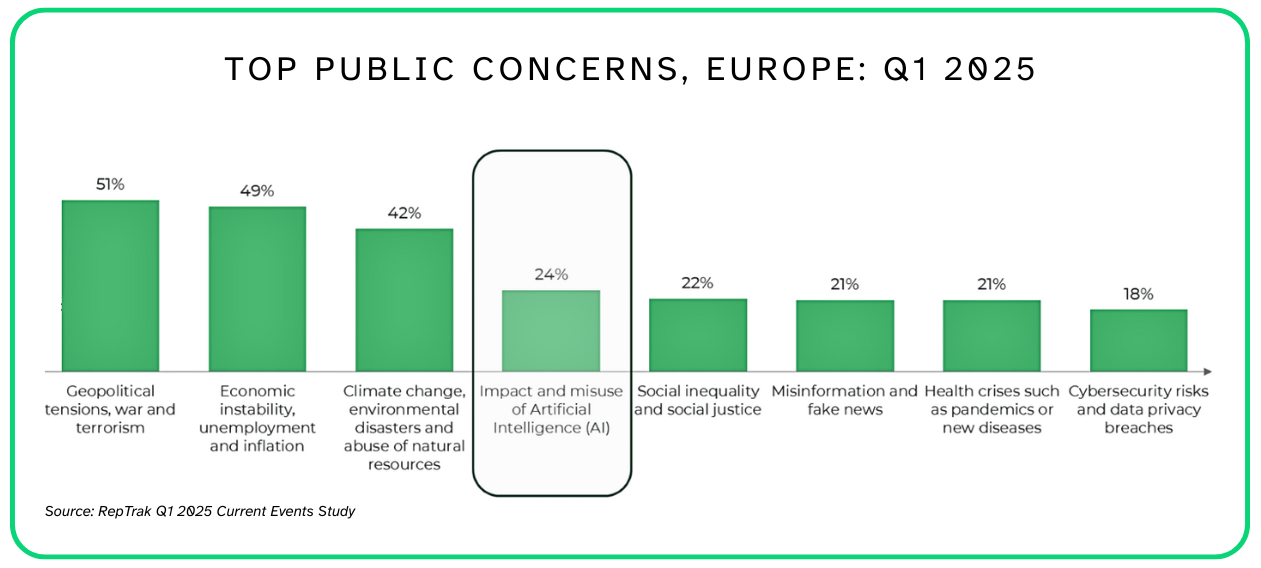
This creates major reputational risk for companies that deploy AI without clear, accessible communication. Leaders must explain their approach to AI in plain, human language — what they’re using it for, how it’s being governed, and what safeguards are in place. The companies best positioned for trust are those that proactively acknowledge AI’s complexity, speak openly about benefits and limitations, and demonstrate humility and responsibility.
A Blueprint for Informed Bravery
Given these dynamics, what exactly does bravery look like for communications leaders today? It’s certainly not reckless risk-taking. Rather, it’s about thoughtful, informed action guided by stakeholder intelligence, anchored in your values. We believe brave communications leaders should follow several principles:
Align Comms with Consistent Drivers: Product quality, ethics, and societal contributions remain your anchors in communications.
Adapt Language Thoughtfully: Translate your core messages into terms that resonate locally. Be sensitive to regional differences — rebranding phrases, never principles.
Proactively Communicate About AI: Address stakeholder fears openly. Clarify AI’s practical role, safeguards, and limitations transparently and humbly.
Segment Communications for Diverse Stakeholder Groups: Tailor messages to specific roles (employees, customers, investors, regulators) while remaining consistent in your core narrative.
Listen Continuously: Replace annual surveys with real-time stakeholder intelligence — we recommend RepTrak.
Commit Transparently: Follow through on initiatives, even when facing setbacks. Be candid about challenges, as stakeholders will reward transparency and consistency.
This is what reputation leadership means in 2025: using intelligence as your compass to confidently navigate a shifting world. Fortune still favors the brave — but especially those brave enough to move thoughtfully forward, even when steps feel impossible.


